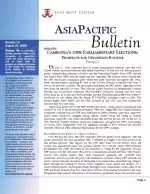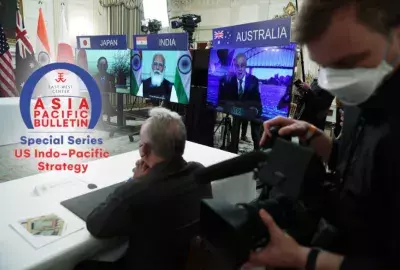Error message

On July 27, 2008, Cambodia held its fourth parliamentary elections since the 1993 United Nations sponsored elections that ended Cambodia's 14 year civil war. Eleven political parties contested these elections of which only the Cambodian People's Party (CPP) and the Sam Rainsy Party (SRP) were largest and best organized. The election results showed that the CPP, the former communist party which had ruled Cambodia throughout the 1980s, made substantial gains, capturing 90 seats in the 123-seat National Assembly--up from 73 seats in the previous assembly. Opposition parties led by the Sam Rainsy Party (SRP) rejected the results, citing political intimidation and violence, as well as biased electoral machinery. However, without evidence of massive malfeasance, and given the CPP's wide margin of victory, these irregularities were not significant enough to have reversed the electoral outcome. There are other additional explanations for the CPP's triumph. The views expressed in this publication are those of the author and do not necessarily reflect the policy or position of the East-West Center or any organization with which the author is affiliated. |
On July 27, 2008, Cambodia held its fourth parliamentary elections since the 1993 United Nations sponsored elections that ended Cambodia's 14 year civil war. Eleven political parties contested these elections of which only the Cambodian People's Party (CPP) and the Sam Rainsy Party (SRP) were largest and best organized. The election results showed that the CPP, the former communist party which had ruled Cambodia throughout the 1980s, made substantial gains, capturing 90 seats in the 123-seat National Assembly--up from 73 seats in the previous assembly. Opposition parties led by the Sam Rainsy Party (SRP) rejected the results, citing political intimidation and violence, as well as biased electoral machinery. However, without evidence of massive malfeasance, and given the CPP's wide margin of victory, these irregularities were not significant enough to have reversed the electoral outcome. There are other additional explanations for the CPP's triumph. The views expressed in this publication are those of the author and do not necessarily reflect the policy or position of the East-West Center or any organization with which the author is affiliated. |







